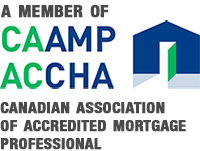


allMy financial institution wouldn’t give me the money I needed to finish my project although I had invested a lot and was only looking to borrow 50% value of the property. I contacted Jesse and he had me approved within 24 hours and I had the money in my bank account within 6 days.
JESSE BRUN
Mortgage IntelligenceLicense #10428
Mortgage Broker (NB)
Mortgage Agent Level 2 (ON)

Home Builder Mortgages Hamilton ON
As the city of Hamilton, ON continues to grow and develop, many home builders in Hamilton ON are struggling to get the financial support then need from traditional banks. That's where mortgage solutions specially designed for home builders in Hamilton ON can help.
If you’re a home builder in Hamilton ON it's important to understand the various financing options available to you. There are mortgage solutions specially designed to help home builders and developers in Hamilton ON finance their projects and meet the demand for new housing. Using these alternative mortgage lenders can help maximize profits and keep building crews working.
When it comes to mortgages for home builders in Hamilton ON our office uses private construction lenders that understand construction financing and understand that home builders can’t always provide proof of income or have pre-sales. Our construction financing solutions for home builders in Hamilton ON are more based on the equity as opposed to credit ratings, cashflow or pre-sales.
Why choose our mortgage company for a home builder mortgages in Hamilton ON?
If you are tired of dealing with banks and not getting the financing support you need, we can offer you the best construction Loans. Our construction lenders in Hamilton, ON are competitive and they support many developers & home builders. Our construction lenders also have advanced methods to quickly fast-track the approval process. As a bonus, our construction lenders do not have any credit score, income, or presale requirements like traditional banks have.
If your project is denied financial support by the bank or if you want to complete more projects faster, we are at your service to help you. Call (888)878-4660 and chat with us for an expert opinion about your project.
We are confident that when you connect with us, we can help to remove all headaches and hassles to get you the money to start your construction or development project as soon as possible. If you have money problems for your profitable projects, we have solutions.
Feel free to visit our construction loan website which shows in more details our private construction lender solutions for home builders and developers in Hamilton ON. The website is: www.ezconstructioncapital.com
Our mortgage office specializes in providing bad credit construction loans in Hamilton, ON. We have years of experience working with individuals who have bad credit, and we understand the challenges that you may be facing.
When you choose our mortgage office for your bad credit construction loan, you can expect:
- Flexible eligibility requirements
- Personalized service
- Experience construction mortgage agent
- Fast construction approvals
- Expert advice & guidance
Construction draws. The general process:
In Canada, a construction draw mortgage is a popular financing option for builders and developers. This type of mortgage loan releases funds to the borrower at different stages of the construction process.
Typically, a construction draw mortgage is divided into three draws:
- First Draw (Weather Tight): This draw is given when the construction reaches the "weather-tight" stage, which means the building has a roof, windows, and exterior doors that can keep out the weather. The borrower can use this draw to pay for the completion of the exterior of the home, such as the foundation, framing, roofing, and exterior finishes.
- Second Draw (Sheetrock Ready): The second draw is issued when the construction reaches the "sheetrock ready" stage, meaning the interior walls are ready for drywall installation. This draw is meant to cover the costs associated with completing the interior of the home, such as insulation, electrical work, plumbing, and drywall.
- Final Draw (98% or 100% Complete): The final draw is given when the construction project is either 98% or 100% complete, depending on the lender's policies. This draw is intended to cover the remaining costs of the project, such as landscaping, paving, and final finishes.
During the construction period, the borrower pays interest only on the funds that have been drawn from the construction draw mortgage, not on the entire loan amount. However, the interest rate for a construction draw mortgage is generally higher than for a standard mortgage loan due to the higher risk associated with construction projects. The lender may also conduct inspections of the construction site to ensure that the work has been completed before releasing each draw.
Below is a list of words that are associated with getting a construction loan. We are providing you the list along with their definitions to help you in your construction journey:
- Disbursement: the process of releasing funds from a construction loan to pay for materials, labor, and other expenses.
- Closing costs: the fees associated with finalizing a mortgage or real estate transaction, including things like appraisal fees, title insurance, and attorney fees.
- Lien: a legal claim against a property, usually filed by a creditor who is owed money by the property owner.
- Mortgage broker: a middleman who helps borrowers find and apply for mortgages, typically by working with a network of lenders.
- Title insurance: insurance that protects the lender and/or the homeowner against any title defects or disputes that may arise.
- Construction-to-permanent loan: a type of mortgage that allows borrowers to finance both the construction and the long-term financing of a new home or other real estate project.
- Builder's risk insurance: insurance that protects against damage or loss during the construction process.
- Certificate of occupancy: a document issued by a local government agency that certifies that a newly constructed building meets all local building codes and is safe for occupancy.
- Construction contract: a legal agreement between a property owner and a contractor that outlines the terms and conditions of a construction project.
- Contingency fund: a reserve of money set aside to cover unexpected expenses that may arise during the construction process.
- Building permit: a document issued by a local government agency that authorizes the construction of a new building or renovation of an existing structure.
- Inspection: a process in which a professional inspector examines a property to ensure that it meets all relevant safety codes and standards.
- Architect: a professional who designs buildings and oversees their construction.
- Retainage: a portion of a construction payment that is withheld until the project is complete, typically used as a form of security against any potential defects or delays.
- Surety bond: a type of insurance that guarantees that a construction project will be completed according to the terms of a contract.
- Homeowner's insurance: insurance that protects against damage to a home or other property, typically required by lenders as a condition of a mortgage loan.
- Construction loan: a short-term loan used to finance the construction of a new home or other real estate project.
- Mortgage: a loan secured by real estate, usually used to purchase a home or other property.
- Equity: the difference between the value of a property and the amount of money owed on any outstanding loans.
- Draw schedule: a timeline of when and how much money will be disbursed during the construction process, usually based on certain milestones being met.
- Appraisal: an estimate of the value of a property, typically done by a professional appraiser.
- Blueprints: detailed plans for a construction project, typically drawn up by an architect or engineer.
- Zoning laws: regulations that dictate how land can be used in a given area, typically set by local governments.
- Closing disclosure: a document that outlines the final terms of a mortgage loan, including the interest rate, closing costs, and other fees.
- Loan-to-value ratio: a comparison of the amount of money borrowed to the value of the property being purchased.
- Subcontractor: a professional hired by a contractor to perform specific tasks, such as electrical or plumbing work.
- Certificate of substantial completion: a document issued by a project manager or inspector that certifies that a construction project has been completed to a certain degree.
- Construction lien waiver: a document signed by a contractor or subcontractor that waives their right to file a lien against a property in exchange for payment for their services.
- Interest-only loan: a type of loan in which the borrower only pays interest for a set period of time, with the principal due at the end of the loan term.
- Balloon payment: a large, one-time payment due at the end of a loan term, typically used in conjunction with interest-only loans or other non-traditional mortgage products.
- Construction contingency: a reserve of funds set aside in case of unexpected expenses that may arise during the construction process.
- Loan servicing: the process of collecting loan payments, managing escrow accounts, and other administrative tasks related to mortgage loans.
- Loan origination: the process of applying for and obtaining a mortgage loan
- Escrow: a financial account held by a third party, typically used to hold funds for property taxes, insurance, and other expenses.
- Change order: a written document that outlines any changes to the original scope of a construction project, typically used to update project plans and budgets.
- Punch list: a list of final tasks that need to be completed before a construction project can be considered fully finished.


